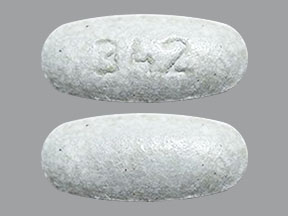
Nicotinamide Coupons & Savings Card – Discount Prices from $167.42
Nicotinamide Multivitamin is a prescription dietary supplement that combines nicotinamide, a form of vitamin B3, with other essential vitamins and minerals. This supplement is designed to support overall health and wellness. It is available under various brand names, each offering different ingredients or strengths. While this supplement serves as a general health aid, it is crucial to consult your healthcare provider before beginning any new medication or supplement regimen to ensure it is appropriate for your specific health needs.
Our coupons are free to use. Before paying, show the pharmacist your Nicotinamide savings card to get your free discount. Use our filters below to edit the prescription box to match your needs. The Nicotinamide prices will update based on your prescription needs. Above our Nicotinamide coupons, you can change your location to see pharmacy prices and costs in other areas. We're here to help you buy Nicotinamide at the lowest price with our prescription discount card.
My prescription
Edit
750-27-2-0.5MG, Nicotinamide (60 Tablets)
Select pharmacy

CVS
$167.42
COUPON PRICE
Walgreens
$479.41
COUPON PRICE
Walmart
$520.72
COUPON PRICE
Albertsons
$618.15
COUPON PRICENicotinamide savings card
Show this card to your pharmacist
CVS
$167.42
BIN
ID
PCN
GRP
019876
LH88CF4FC0
CHIPPO
LHX
Powered by
Nicotinamide Multivitamin is a prescription dietary supplement that combines nicotinamide, a form of vitamin B3, with other essential vitamins and minerals. This supplement is designed to support overall health and wellness. It is available under various brand names, each offering different ingredients or strengths. While this supplement serves as a general health aid, it is crucial to consult your healthcare provider before beginning any new medication or supplement regimen to ensure it is appropriate for your specific health needs.
Our coupons are free to use. Before paying, show the pharmacist your Nicotinamide savings card to get your free discount. Use our filters below to edit the prescription box to match your needs. The Nicotinamide prices will update based on your prescription needs. Above our Nicotinamide coupons, you can change your location to see pharmacy prices and costs in other areas. We're here to help you buy Nicotinamide at the lowest price with our prescription discount card.
Related multivitamin and mineral supplements prescriptions
More prescriptions for nutritional deficiency
coupons from$11.23Save 41%
coupons from$19.12Save 77%
coupons from$6.97Save 54%
coupons from$9.62Save 50%
coupons from$7.63Save 76%
coupons from$6.97Save 54%
coupons from$282.71Save 19%
coupons from$5.68Save 43%
Related multivitamin and mineral supplements prescriptions
Virt-caps Save 37%coupons from $18.82
Integra Save 68%coupons from $15.35
Hematogen Save -14%coupons from $15.78
Dosokap Save 66%coupons from $14.63
Folbee Save 23%coupons from $18.61
Foltx Save 64%coupons from $74.46
Cerefolin Save 73%coupons from $176.58
Folbic Save 74%coupons from $22.32
More prescriptions for nutritional deficiency
Rena-vite Rx Save 41%coupons from $11.23
Reno Caps Save 77%coupons from $19.12
Oyster Shell Calcium/vit D3 Save 54%coupons from $6.97
Pyridoxine Save 50%coupons from $9.62
Dialyvite Save 76%coupons from $7.63
Os-cal Calcium + D3 Save 54%coupons from $6.97
Tm-vite Rx Save 19%coupons from $282.71
Nephro-vite Save 43%coupons from $5.68
Nicotinamide dosage forms
Use our Nicotinamide 750-27-2-0.5MG coupon with prices from $167.42 for 60 Tablets.
Dosage Quantity Price from Per unit 750-27-2-0.5MG 60 Tablets $167.42 $2.79
| Dosage | Quantity | Price from | Per unit |
|---|---|---|---|
| 750-27-2-0.5MG | 60 Tablets | $167.42 | $2.79 |
